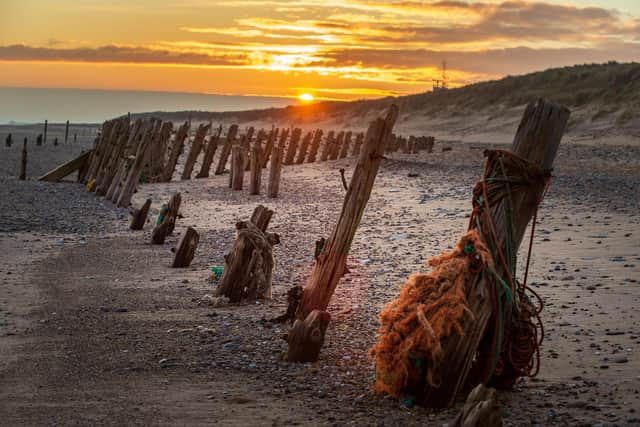Bashing holiday homeowners is not the answer to problems in coastal communities - Jayne Dowle
So it was pertinent that last week, Labour’s Shadow Chancellor and MP for Leeds West Rachel Reeves chose the Yorkshire coast to talk about how Labour will make British seaside towns thrive again.
This public appearance came in the wake of new research by Labour which finds that in the last decade (between 2011 and 2021) almost all seaside towns in England and Wales experienced a fall in employment levels of almost 50,000 - with job losses of more than 10 per cent for some locations.
Advertisement
Hide AdAdvertisement
Hide AdMost towns had a lower employment rate than their surrounding region, whilst during this 10-year period all of England and Wales saw the number of jobs rise by 1.1m, underlining the worrying trend of seaside locations becoming ever more isolated, with younger people often leaving and finding work inland.


Ms Reeves said that Labour’s major target would be holiday homeowners who leave properties empty, contributing little to local economies.
Yet Labour would also make it more difficult for these same holiday homeowners to rent out to tourists; in government, the party would compel owners to register before letting out seaside properties or face fines, with Ms Reeves confirming that Labour would introduce a mandatory licensing scheme for holiday homes.
This is clearly designed to win votes in seaside constituencies, but it’s short on clarity and context. Registering and licensing are two different things, for a start.
Advertisement
Hide AdAdvertisement
Hide AdIn fact, there is already a House of Commons call for evidence underway into developing a tourist accommodation registration scheme in England, launched in April by Nigel Huddleston, Minister for Sport, Tourism, Heritage and Civil Society.
Mr Huddleston rightly acknowledges that “the shape of England’s guest accommodation landscape has changed over the last 15 years,” recognising that the rise of digital platforms such as Airbnb and Booking.com have transformed the market, but at the same time brought about concerns around the effects of tourism on local communities.
These are dangerously polarising waters, as we know here in Yorkshire with the furore over second homeowners in Whitby. Last year, 93 per cent of the 23 per cent of locals who cast a vote said that they wanted to restrict the sale of new-build and additional housing to full-time residents.
At the start of June, the holiday let licensing scheme mooted for Edinburgh – where Airbnb owners are under fire - was slammed as “onerous and oppressive” by a crowdfunded legal challenge, judged unlawful by Scotland’s Court of Session, and put back to the drawing board.
Advertisement
Hide AdAdvertisement
Hide AdTackling deep-rooted economic and social problems in coastal communities is a far more complex undertaking than promising to crack down on second homeowners, at whose door all the blame for social decline is too often lazily laid.
Indeed – apart from stand-outs such as Whitby – penalising holiday homeowners in Yorkshire might do more harm than good. According to Census 2021 figures, the South West of England, in particular Cornwall, has the highest concentration of holiday homes compared with other English regions and Wales, at 7.5 for every 1,000 homes.
Such policies would hardly make a dent in the complex problems faced in many Yorkshire and northern seaside towns, and could even run counter to any future attempts at ‘levelling-up’, by shutting out incomers who might bring some benefits to beleaguered areas.
Areas such as Cornwall have been popular for generations, but thanks to the proliferation of holiday lets - rather than big fancy hotels - they have been largely transformed by tourism in the last few decades.
Advertisement
Hide AdAdvertisement
Hide AdWhat would be useful for Labour is to take off the blinkers and accentuate the positive, looking at what makes a seaside town work; the correct balance of places to stay, a welcoming hospitality, retail and business climate and protections in place for the natural environment.
Rather than bash all holiday homeowners with the same stick, what’s needed is a subtle and balanced look at how easily available accommodation to suit a range of budgets can bring in much-needed tourist pounds, whilst at the same time, exploring how sustainable employment opportunities and affordable housing for local people might be established.
